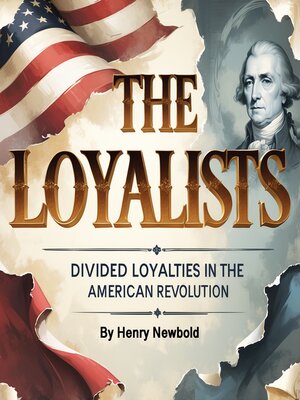The Loyalists
audiobook (Unabridged) ∣ Divided Loyalties in the American Revolution
By Henry Newbold

Sign up to save your library
With an OverDrive account, you can save your favorite libraries for at-a-glance information about availability. Find out more about OverDrive accounts.
Find this title in Libby, the library reading app by OverDrive.



Search for a digital library with this title
Title found at these libraries:
| Library Name | Distance |
|---|---|
| Loading... |
This audiobook is narrated by a digital voice.
In the standard narrative of the American Revolution, the story seems deceptively straightforward: oppressed colonists united against British tyranny in a courageous fight for liberty and independence. This telling has become so embedded in American identity that it can be difficult to imagine that many Americans of the Revolutionary era viewed the conflict very differently. Yet for approximately one-fifth to one-third of white colonists living in what would become the United States, the Revolution was not a glorious cause but a dangerous rebellion against legitimate authority.
These Americans—the Loyalists—have often been relegated to the margins of Revolutionary history, cast as villainous Tories, misguided conservatives, or insignificant outliers. Yet their story is essential to understanding the full complexity of the American Revolution. For the Loyalists, the years 1775-1783 marked not a triumphant birth of a nation but a devastating civil war that tore apart communities, severed family bonds, and ultimately forced many into permanent exile.
The experience of the Loyalists reminds us that the American Revolution was not just a war against Britain but also a deeply divisive conflict among Americans. In towns and cities throughout the colonies, in elegant drawing rooms and rustic taverns, Americans debated fundamental questions about governance, allegiance, and the proper bounds of resistance to authority. The Revolution was not merely a military struggle but a contest of ideas about the nature of liberty, the meaning of allegiance, and the legitimacy of established institutions.
What made some colonists remain loyal while their neighbors embraced independence? The answers are as diverse as the Loyalists themselves. Some acted out of principled conviction, others from religious belief, economic interest, cultural ties, or simply fear of change.







